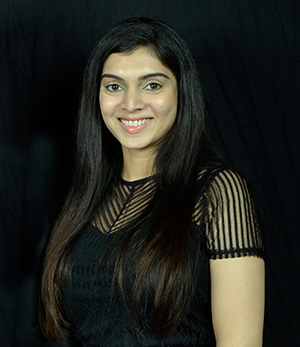
Towards the leading College of Law and Justice in Africa

Dr Safia Mahomed
Unisa’s Dr Safia Mahomed does great things at work and in communities across South Africa and beyond. That’s proven by the accolade she recently received as one of four winners of the 2018 Principal’s Award for Excellence in Research.
Targeted at young developing researchers below the age of 35, the prize is an annual award for achieving academic research excellence in a research cohort comprised of scholars who are in the minority throughout the national higher education system.
Keeping all her balls in the air, Mahomed juggles between tuition, research, community engagement and academic citizenship. She is one of three Unisans teaching the Introduction Law module to 10 000 students per semester. Furthermore, she is involved in sessional lectures at the University of the Witwatersrand (Wits) Steve Biko Centre for Bioethics and supervises postgraduate students, both at Unisa and Wits.
As Chair of the College of Law’s Biotechnology and Medical Law Flagship, Mahomed is actively involved in community engagement projects. "We arrange an average of four activities per year on topical, relevant issues that impact our communities," she explains. Insofar as academic citizenship is concerned, Mahomed keeps the ball in the air by participating in institutional and national committees, including the UNESCO National Bioethics Committee. Daily she commits to her research.
My field of research is broad and includes human tissue legislation and biobanking, access to healthcare, health law and bio-technology, and human rights and bioethics.
Our communities, in specific, research participants, inspire me, as they make scientific discovery possible and give of themselves altruistically with little expectation in return. This is why it is so important to ensure that research participants are safeguarded against exploitation and other forms of harm.
My mother, who is a health activist.
The diverse topics and the scholarly achievements by Unisa academics.
Hard work always pays off, against all odds.
As young black women, we face several hurdles. However, perseverance always reaps rewards. Never give up.
I am currently shifting my research trajectory towards ethico-legal issues of the fourth industrial revolution (4IR) in the context of healthcare... watch this space.
* Interview by Lesego Ravhudzulo, Journalist, Department of Institutional Advancement
Publish date: 2019-04-02 00:00:00.0